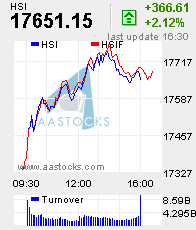"Give a man a fish and he'll live for a day. Teach a man to fish and he'll live for the life."
The Financial Secretary (Mr. Henry Tang) chaired the newly established Commission on Poverty. The commission aims at identifying the needs of the poor and solving poverty through encouraging and supporting self-reliance.
I remember when I was young my family was so poor that the only possible solution was self-help and self-strengthen rather than any outside assistance. In economics, we have the Lorenz curve and Gini Coefficient (*) that indicate the degree of seriousness of the problem of uneven distribution of wealth. However, I think it is hardly to draw a specific line to define who is above or below the poverty margin. The top priority of the working schedule is to prevent the so-called "inter-generational poverty". It is the right direction.
I totally agree with the existing policies and measures in alleviating poverty such as providing social security, medical services to the needy, educational services to students, training and retraining programmes as well as employment information services. The rest of the work is how to co-ordinate various government departments in a better way to fight the problem.
The most cost effective way to alleviate the pain of poor in any economy is not just giving them "the fish to eat" but to teach them "how to fish" for the rest of their lives.
Even with monetary or material assistance it only meets the temporary needs. The poor recipients would have to develop their abilities to live independently in the long run. They should stand on their own feet; otherwise the prolonged material assistance will just increase the burden to the society as a whole as a chinese proverb says “長貧難顧”.
Copyright Reserved by tcwong©
(* economic jargons)
The Lorenz curve is used in economics to describe inequality in income.
The Lorenz curve is a function of the cumulative frequency of ordered individuals mapped onto the corresponding cumulative frequency of their income.
The Lorenz curve compares the uneven distribution of income with the uniform distribution (represented by a 45 degree diagonal straight line that represents equality).
Gini coefficient is based on the Lorenz curve. The greater the deviation of the Lorenz curve from the equality diagonal line, the greater the inequality.
I.e. The further the Lorenz curve lies below the line of equality, the more unequal is the distribution of income.
To compute the Gini Coefficient, we first measure the area between the Lorenz Curve and the 45 degree equality line. This area is divided by the entire area below the 45 degree equality line(which is always exactly one half). The quotient is the Gini coefficient, a measure of inequality.
In extreme equality (i.e. for a perfectly equal distribution), there would be no area between the 45 degree line and the Lorenz curve -- a Gini coefficient of zero. And, in extreme inequality, Gini coeficient is 1.










